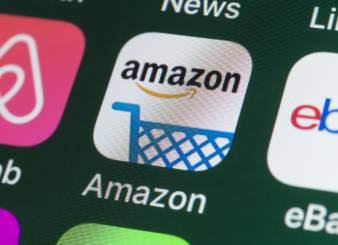As a result of the ongoing Brexit debacle, the Supply Chain industry in the UK is in flux.
European graduates, who typically dominate Supply Chain, are opting to stay on the continent, while export is overtaking import in importance…to name but two of the industry’s emerging trends.
As you can imagine, Supply Chain is going through a period of both uncertainties right now. Or, depending on your interpretation, a period of opportunity.
With that in mind, here are some emerging trends to keep an eye on in the coming months.
Demand planners are, appropriately, in demand
A lot of companies are upgrading their demand planning function, advancing from traditional S&OP (Sales and Operations Planning) to IBP (Integrated Business Planning). This is especially true for blue-chips, who have the resources to implement IBP and are likely to see the greatest returns.
In layman’s terms, they’re making the demand planning process collaborative, while simultaneously expanding its focus. Whereas monthly forecasting meetings once involved only marketing, sales, and operations teams, IBP now integrates the involvement of finance in the discussion.
But why? And what does this mean?
Basically, it guarantees greater accuracy, because you’re considering a wider range of data, ultimately creating a more agile, realistic and strategic monthly forecast.
Export is stealing focus from import
As the government continues to hash out a deal with the EU about Brexit—who knows how much longer they’ll be at it!—export is understandably becoming the logical focus.
Why?
The pound has weakened significantly since 2016, meaning exporting British goods is more cost effective.
Notably, this means that there’s more need for candidates with experience in exports, knowledge of taxes, levies and appropriate customs documentation.
Shipping professionals are moving to FMCG Head Office roles
Previously food FMCG business would only consider people with a food industry background. That has now changed and we see more fluidity between food and non-food FMCG professionals.
Logistics managers in FMCG head offices are realising people with shipping backgrounds have transferable skills and with the right training, they are able to tap into a wider talent pool that they hadn’t previously considered.
As recruiters, we’ve seen first-hand how Supply Chain line managers are open to applicants from more diverse backgrounds right now, like marketing and sales.
Dip in European Supply Chain candidates
Again, Brexit’s uncertainty is affecting Supply Chain, this time from a recruitment point of view.
While this industry is typically dominated by European graduates—in 2015, 69% of Vertical Advantage’s Supply Chain placements were European—the number of applicants from the EU is decreasing. In 2018, we saw an almost 10% decline.
This is likely because there is a vat of uncertainty surrounding their immigration status in this turbulent Brexit time. Will they be allowed to reside visa-free in the UK post-Brexit? Will they receive sponsorship from their employer? Nobody really knows.
On the upside, this provides a huge opportunity for UK candidates keen to move into Supply Chain.
These are interesting times, we have a capable and knowledgeable team here who would be happy to talk through these industry insights in further detail and to assist you with any upcoming recruitment needs.


















Recent Comments